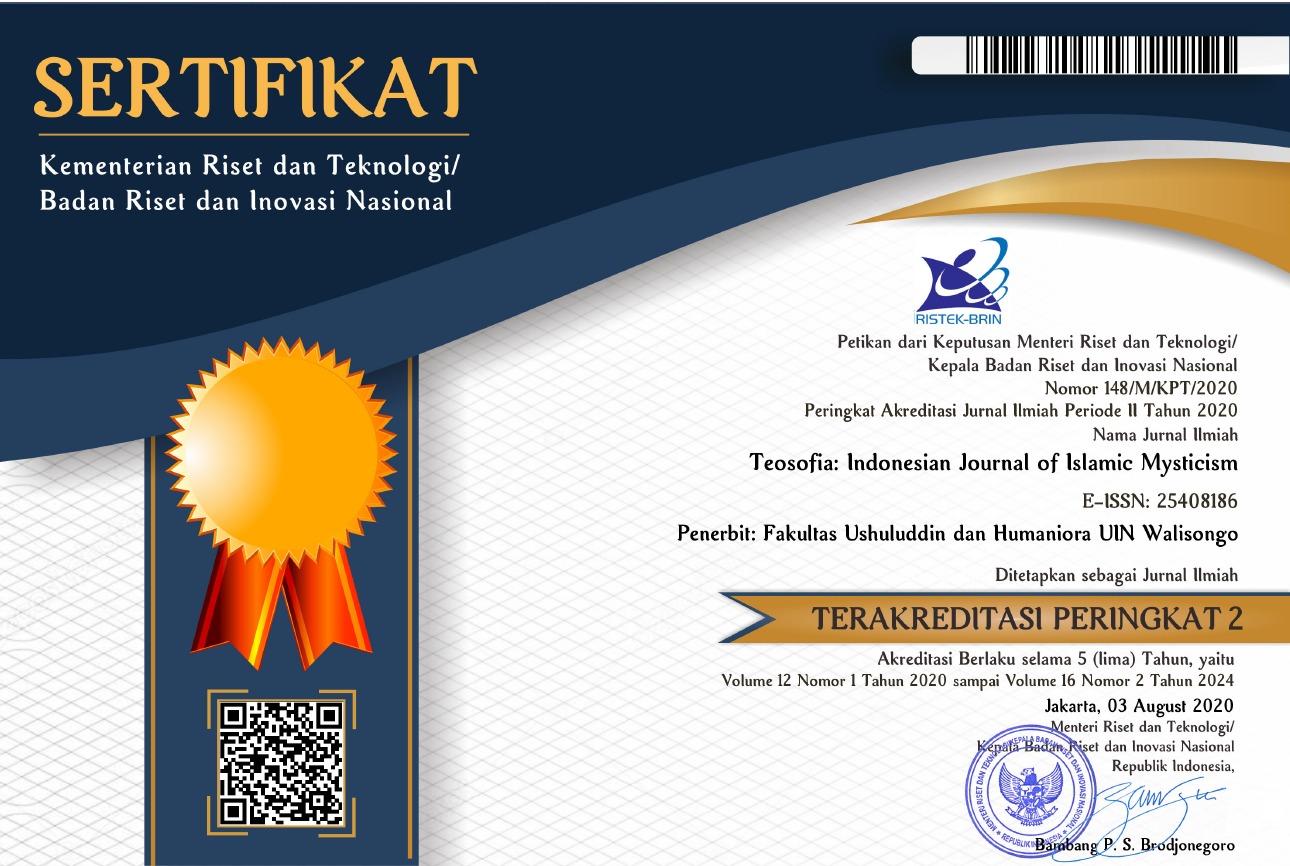ADAB FOR A PEACEFUL WORLD: A Study of Jalaluddin Rumi’s Concept of Sufism
DOI:
https://doi.org/10.21580/tos.v5i2.1714Keywords:
Rumi, love, adab, fana’, baqa’Abstract
Rumi’s spiritual teaching is slightly different from others' in a way that his devotional concepts put greater emphasis on ethics. Rumi believes that spirituality tightly relates to ethics, without which one neither could attain nor be able to stay in spiritual perfection. To sail to God, one should implement some ethical values best covered by the frame to love and to renunciate. To love entails loving God and His creatures, while to renunciate indicates the detachment from worldly desires. Putting these two into application, one will be able to attain the union with the Sublime Being (fana’). However for Rumi, one could be said to reach spiritual perfection only after he returned from self-mortification and gained spiritual wisdom that allows him to share universal love to the rest of human lives (baqa’).Downloads
References
Al-Attas, Syed Muhammad Naquib, The Concept of Islamic Education, Presented in First World Conference on Muslim Education, 1997.
Barks, Coleman, Rumi: The Glance Songs of Soul Meeting, USA: Penguin compas, 2001.
Cunz, Peter H., Mawlana from A European Point of View. In Rumi and His Spritual Path of Love, M. Fatih Citlak & Huseyin Bingul (eds.) New Jersey: The Light, 2009.
Gamard, Ibrahim. Rumi and Islam; Selection from His Stories, Poems and Discourses. Vermont: SkyLight Paths Publishing, 2004.
Jamal, Mahmood. Islamic Mystical Poetry: Sufi Verse from the Early Mystics to Rumi, England: Penguin, 2009.
Lewis, Franklin D. Rumi-Past and Present, East and West: The Life, Teaching and Poetry of Jalal al-Din Rumi, Oxford: Oneworld Publication, 2000.
Wines, Leslie. Rumi: A Spiritual Biography, New York: The Crossroad Publishing Company, 2000.
Zarrinkub, A-H. Step by Step Up to Union with God; Life, Thought and Spiritual Journey of Jalal al-Din Rumi, Translated by M. Keyfany, New York: Persian Heritage Foudation, 2009.
Downloads
Published
How to Cite
Issue
Section
License
Copyright
The copyright of the received article shall be assigned to the journal as the publisher of the journal. The intended copyright includes the right to publish the article in various forms (including reprints). The journal maintains the publishing rights to the published articles. Therefore, the author must submit a statement of the Copyright Transfer Agreement.*)
Licensing

This work is licensed under a Creative Commons Attribution-ShareAlike 4.0 International License.
In line with the license, authors are allowed to share and adapt the material. In addition, the material must be given appropriate credit, provided with a link to the license, and indicated if changes were made. If authors remix, transform or build upon the material, authors must distribute their contributions under the same license as the original.
_______
*) Authors whose articles are accepted for publication will receive confirmation via email and send a Copyright Transfer Agreement.









